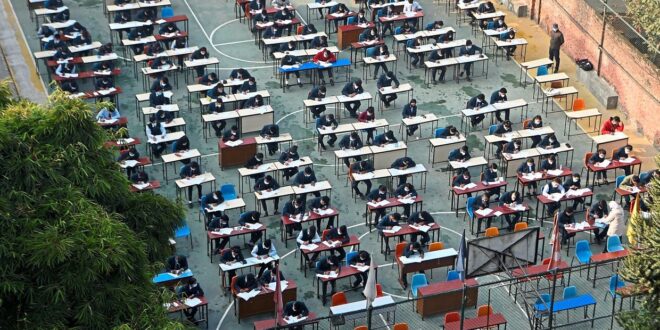PETALING JAYA: Irfan Jalil wants to study English after he gets his Sijil Pelajaran Malaysia (SPM) results. But he is in a dilemma: his family had recently lost its breadwinner – his father – so if he wants to go to college, he has to take a loan.
But if the 18-year-old follows through with his plan and gets a loan, it would strain his future finances and crimp his ability to support his mother and three younger brothers, who are still in school.
“Without government help, it will be difficult to further my studies although I have a working sister who says she could try to support me.
“But she is also supporting my mother and younger brothers,” said Irfan when met at the low-cost flat in Subang Jaya, Selangor, where he lives.
A recent visit from the Social Security Organisation (Socso) has given the family hope.
Its officers said that because their father was a depositor, it will help provide financial assistance to all of the family’s children for their education.
However, Irfan is unsure how much aid Socso would provide and whether it would be enough for him to pursue a diploma or degree.
Based on a survey of several public and private universities’ websites, the fees for a diploma or degree in English or Teaching English as a Second Language range from about RM5,700 to RM15,300.
“I want to continue my studies but I don’t want to further burden the family, especially my mother,” said Irfan.
His sentiments reflect a trend tertiary education leaders and policymakers are worried will persist as the 2023 SPM results are announced tomorrow and higher learning institutes ramp up promotions to attract new students.
Politicians such as former youth and sports minister Syed Saddiq Syed Abdul Rahman have claimed that for the past few years, an increasing number of SPM leavers are deciding not to further their studies.
The Muar MP claimed that surveys among SPM leavers have revealed that two out of three of them are not interested in hitting the books any more.
Indeed, data from the Higher Education Ministry shows that after dropping to between 1.22 million and 1.21 million during the pandemic years of 2020 and 2021, the enrolment of students in public and private tertiary institutions has struggled to return to pre-pandemic levels.
A slight reprieve was seen in 2023, where 1.25 million students enrolled, up from 1.2 million in 2022.
For comparison, there were 1.34 million enrolments in 2018, and 1.32 million in 2019.
Of the 1.25 million students in 2023, 159,545 of them were foreigners while the rest were locals.
Labour and youth activist Mohammad Rizan Hassan said the cost of tertiary education is only one factor, as secondary school leavers are not confident that the time, energy and money spent on a diploma or degree will pay off in the future.
“There is not one SPM or STPM [Sijil Tinggi Persekolahan Malaysia] graduate who is not worried about what jobs will be available to them in the future,” said Mohammad Rizan, who is secretary-general of the National Association of Skilled Workers.
“They are constantly surrounded by the fear that the formal labour sector is not conducive to generating fair-paying jobs, and they are constantly told they don’t have the qualifications that industries need.
“This forces them to go into the informal sector because that is the only viable option,” said Mohammad Rizan.
The Statistics Department classifies work in the informal sector as that which is not covered by a formal agreement and where workers have no social security protections.
Norashikin Hashim is a SPM graduate who chose to work in the informal sector, holding the view that post-secondary qualifications are not worth the hassle for her.
“She had received some offers from colleges in the Klang Valley,” said Hashim Mohammad, the 19-year-old’s father, recounting the discussions he had with his youngest daughter on her plans after she finished schooling.
“She feels that continuing her studies is too expensive and she doesn’t want to be saddled with a student loan.
“So she decided that instead of spending money, she would earn it,” said Hashim, adding that Norashikin followed her elder sister’s move by opening up a stall selling headscarves near KLCC.
 BeritaKini.biz Berita Viral Terkini di Malaysia
BeritaKini.biz Berita Viral Terkini di Malaysia





